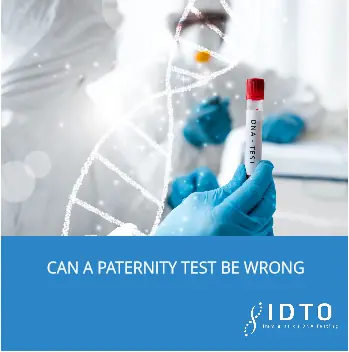Can a Paternity Test Be Wrong?
Paternity tests have become an essential tool in today’s world, used for various reasons ranging from resolving disputes in child custody cases to tracing genealogical history. But have you ever wondered if a paternity test could be wrong? Let’s delve into this topic to understand more.
What is a Paternity Test?
A paternity test is a DNA test that determines whether a man could be the biological father of a child.
How Can a Paternity Test Be Wrong?
While paternity tests are generally reliable, there are instances where they could be wrong. This could be due to a variety of reasons including errors in DNA sample collection, lab mistakes, fraud, testing too few markers, or even defective testing kits.
Mistakes Collecting the DNA
The process of DNA collection is simple but mistakes can occur, such as contamination of samples or mix-ups, which could potentially lead to inconclusive o incorrect results.
Errors Made in the Lab
Human error or technical glitches in the lab, although rare can also lead to errors. This could include mislabeling samples or errors in the DNA extraction and analysis process.
Fraud and Tamper
In some cases, DNA samples could be deliberately tampered with or swapped to manipulate the test results. This is considered fraud and could be legally punishable.
The Man and the Child Are Related
Genetic similarities between close relatives such as an supposed uncle and child may lead to false positive result.
Too Few Markers Tested
If too few DNA markers are tested, there’s a higher chance of incorrect results. More markers tested equates to a higher accuracy rate.
Why is Proving Paternity Important?
Establishing paternity for a child is important because will affect the emotional, physical and financial outcome of a child’s life. Some of the things that may affect the child are, child support, child custody , inheritance, and the child ability to understand were they came from.
Not all Paternity Testing is the Same
There are different types of paternity tests such as prenatal paternity tests and postnatal tests.
Prenatal Paternity Tests
A prenatal DNA tests require a blood a draw while the mother is pregnant. The suspected father’s sample will be collected by cheek swab. Testing labs will test the genetic material of the child floating in the mother’s blood.
This testing option could provide an inaccurate result if the mother had given birth to a child previously hence providing an inaccurate result. Please consult with DNA Testing company providing this service for clarity on the process.
Postnatal Paternity Test
A postnatal or standard paternity test is a cheek swab sample collection test. As stated earlier in this post, although seldom mistakes can occur from sample contamination, sample mixups etc.
Related Questions
Can a DNA test be wrong if the mother is not tested?
No. The mother of the child can increase the accuracy of your results if the man is the biological father of the child.
Although, test performed with the father and child only can produce an accurate result. Having the mother will increase the accuracy by percentage points.
Conclusion
While paternity tests are highly accurate, they are not entirely foolproof. Errors can occur, but with careful handling of samples, using reliable labs, and adequate testing, the chances of erroneous results can be minimized. Understanding the potential pitfalls can help you navigate the process more effectively.
To ensure the highest quality and oversight. It is recommended that you seek DNA Testing companies like IDTO DNA Testing that offer AABB accredited DNA Testing services. Testing performed by an accredited lab ensures that your DNA testing process will adhere to the AABB guidelines.
If you are in need of reliable and accurate DNA Testing services call 877-680-5800 to get started today.



